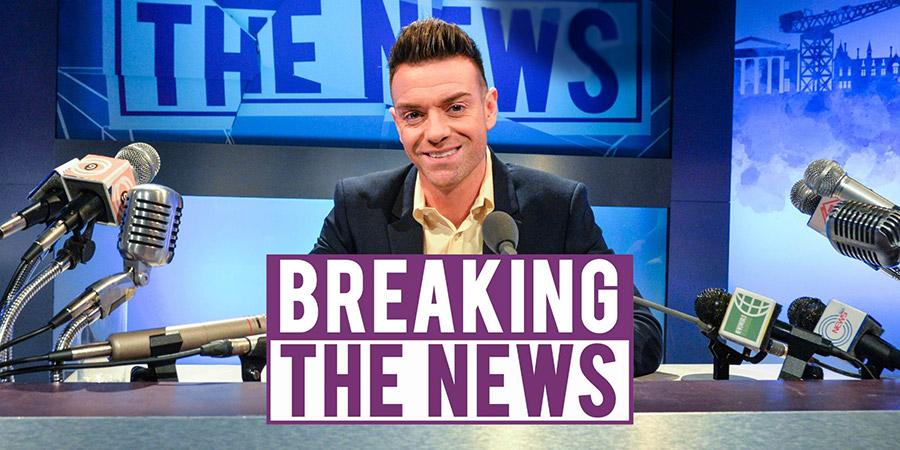Writing for Breaking The News: 5 quick tips

Breaking The News Series 30 might be coming to an end - but there's still an episode to go, and soon it'll be time for Seres 31!
Here are some quick tips to help you write for BBC Scotland's satirical stalwart.
1) Write in Des Clarke's voice
Very occasionally, there is another presenter. You won't be able to write for them, as you probably won't even know about it, so still write for Des. Listen to how he speaks and how he delivers gags. You should be able to visualise (audiolise?) him delivering your lines. If you can't, it's probably not quite right yet.
2) Write properly
Feedline. Gag. Don't write a topper. Don't put your funniest word or the actual gag anywhere but the end of the line. Des shouldn't be talking whilst the audience/guests are laughing. They laugh afterwards.
3) Don't write 'mean' gags
Don't be too mean about people in your gags. They might use a gag that punches up on a politician, but it can't be too nasty, so don't write those gags that you're thinking in your head. Or - write them - but definitely don't send them!
4) Write loads, write everything
Think of every angle on a story and try to write a gag on it. Write notes about the stories and where you think the gags might be.
Read the article in the brief. Then read other articles about the story that isn't in the brief. You know why? Because every line in that story is a potential feed-line for a gag and if no-one else is reading the other articles, you're the only one coming up with those gags!
The same topics come up. A lot. You have to pull out more and more and more gags on the same things.
Go into ridiculous miniscule detail on it, drill down further and further to find more gags. It's exhausting. But someone needs to do it, so why not you?
5) Edit your gags down to fit the submissions limit
The limit is currently two pages each per brief. So two pages max for Wednesday's deadline, then another two pages for Thursday's deadline, then another two pages for Thursday's (very short) deadline.
For the first two at least you should be filling your quota with really solid gags. If you're not editing down your jokes, you're probably not (by definition) coming up with the best stuff.
Need more support? Dave Cohen, Eleanor Hayward and Dan Sweryt's online course offers detailed, structured advice and guidance on picking up your first credits
This article is provided for free as part of BCG Pro.
Subscribe now for exclusive features, insight, learning materials, opportunities and other tools for the British comedy industry.



